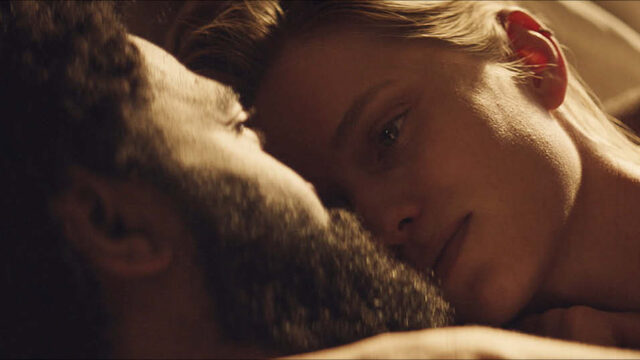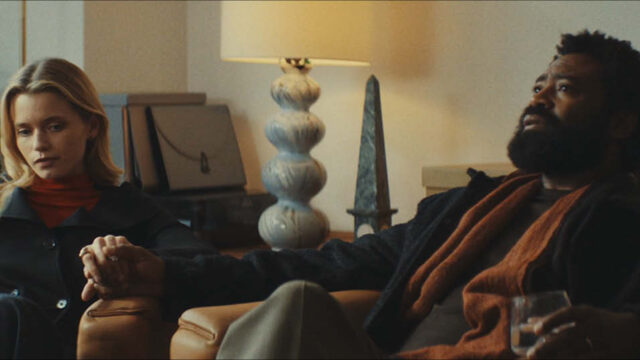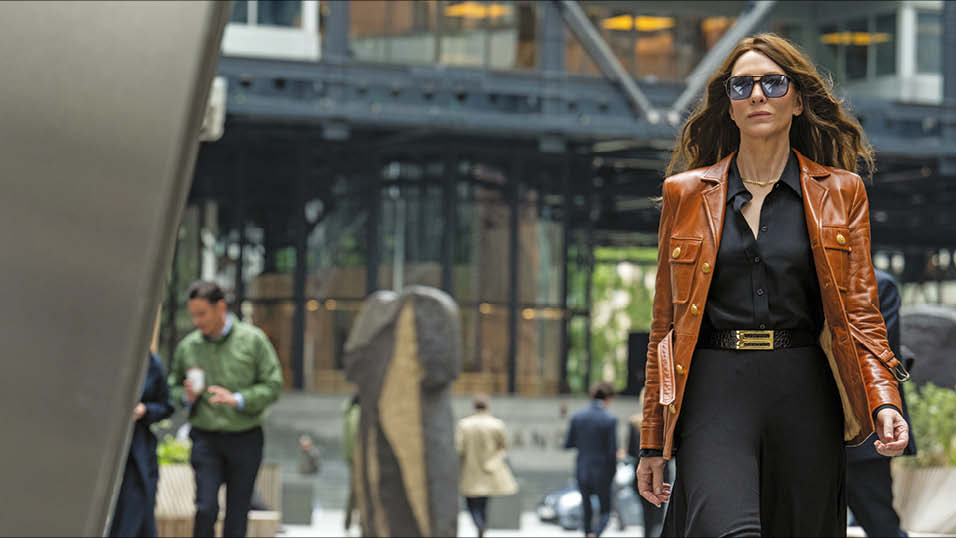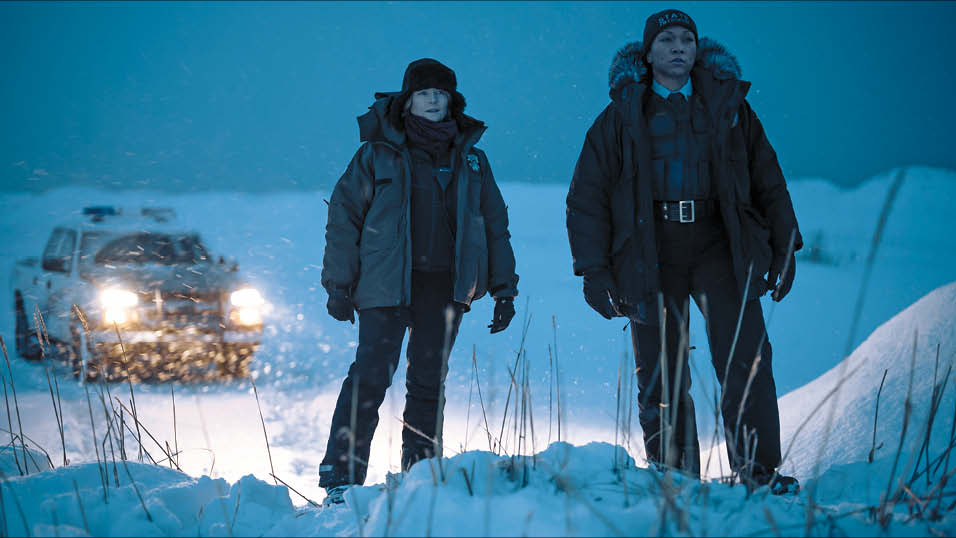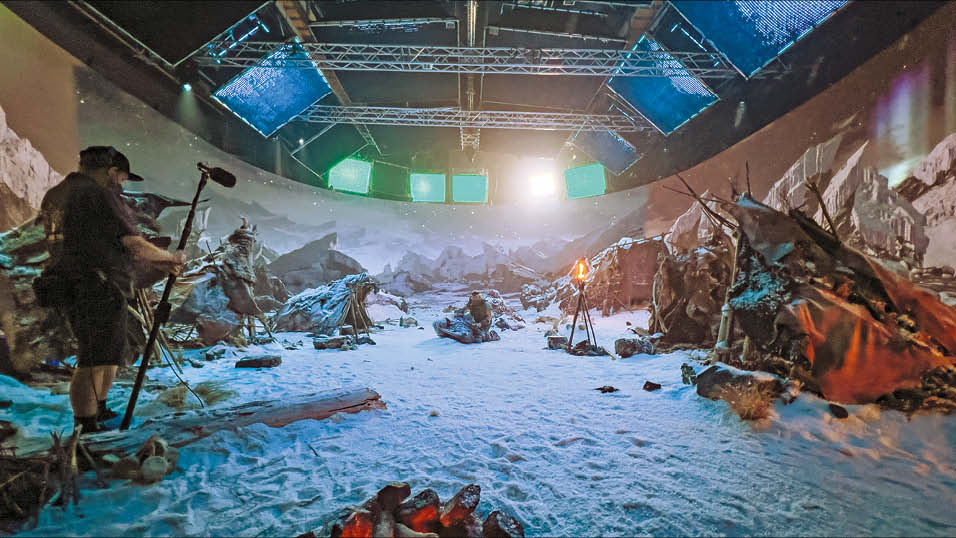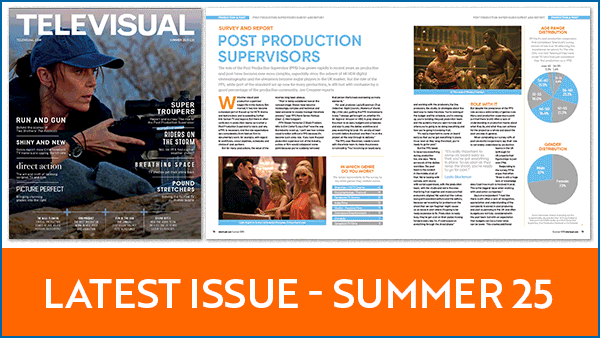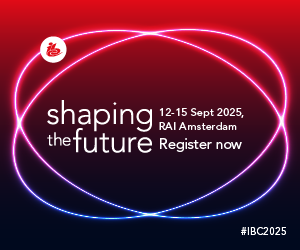Writer, director and executive producer of Channel 4 short form drama Beth, Uzo Oleh, explains how the relationship/sci fi drama came together.
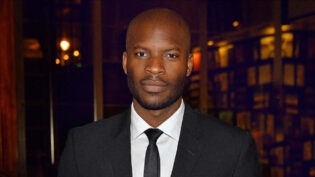
Beth began, like many of my ideas, with a science article. Years ago, I read something in Scientific American that made me say aloud: “No way!?” It described one of those natural miracles that apparently happen all the time, just not to people. Which got me wondering: what if it did happen to a family? What would that look like?
That question became Beth, a short-form series for Channel 4. At its heart, it’s a psychological mystery with emotional weight, moments of comedy, and a touch of sci-fi. It’s about a couple trying to conceive and what happens when the birth finally arrives. Something miraculous, and deeply unsettling, tears at the fabric of their reality, their relationship, and possibly the world.
Beneath all that, it’s really about faith. Not necessarily religious faith (though there are echoes). It asks the question – can you believe your partner when they tell you something that seems impossible? Can trust survive the unfathomable?
The idea gained traction when I heard Channel 4 were commissioning digital shorts. By this point I’d already started writing a longer series about this family, but it got me wondering whether one section could work as a standalone piece: a more intimate version told from the father’s perspective.
Getting the greenlight wasn’t instant. The commissioner and producers interrogated every beat and challenged every assumption, which, honestly, was amazing. It forced clarity. It helped me lock into a tone: deliberate, atmospheric, and coded with subtext. Once that was complete, they were fully on board. I wanted the story to be filled with clues, visual codes, long stretches without dialogue. Given the runtime, atmosphere and symbolism weren’t just creative choices, they were a necessity. The execs embraced it all. Even the clock code. (Yes, there’s a code in the clocks.)
I was lucky to bring back much of the world-class team from my earlier short, Edicius. Glen Freemantle and Ben Barker returned to build the sound design. Thomas Farnon composed another extraordinary score. Our crew are filmmakers who’ve worked on some of my favourite films, between them they have Oscars, BAFTAs, and Emmys, yet they’re grounded, passionate, and excellence-driven collaborators.
I also got to work with someone new, Sergio Delgado, our DoP. A producer friend introduced us, and we clicked straight away.
Our cast was a dream. I hadn’t collaborated with Abbey Lee before, but a trusted friend recommended her. Within minutes of our first call, I knew instinctively that she was the perfect person to play Molly. Nicholas Pinnock (Joe), on the other hand, I’ve known for twenty-five years. That trust meant we could make bold choices quickly. On a tight schedule, that shorthand was gold. Watching their chemistry unfold on set, hearing lines I’d written over a year earlier come to life with their own inflections and mini ad-libs moved me to tears. Which hilariously became a helpful cue to the crew: “He’s crying, we’ve got it. Next shot.”
We filmed on location in London. For a while, we considered building a set. Then we found the house. It had the texture and lived-in soul we needed. I smugly thought, “So glad we didn’t build.” Cut to 18.00 on day two: the homeowners return with their (adorable) screaming children mid-scene. Turns out we were their first ever shoot. I thought, “Wait, why didn’t we build again?” Miraculously, the actors stayed in the zone. Even more miraculous? The children screamed between lines. No ADR needed. Honestly, those children deserved a sound design credit.
In post, the film evolved again. John Smith, who’s cut films like Sliding Doors and Leaving Las Vegas, brought his classic wizardry to the edit. He found moments in the footage I hadn’t registered during shooting. We’d first worked together in lockdown and hadn’t shared a room until now. This time it was a blast.
I’m proud of Beth. It plays well on any screen size. My belief is this: if some of your favourite filmmakers are still alive, you’ve got a duty, as a new voice, to contribute to the conversation. To say something in your own tone. To blur genres. To take risks. Audiences have evolved, just like the times we live in. So, our stories should too. So much of life is digital now but that doesn’t mean our stories should feel disposable. TikTok has the dopamine hits covered. We can all benefit from deeper experiences.
That’s what I hope Beth offers. It’s not a multitasking film; it’s one to lean into. I want audiences to feel the ache and absurdity of Joe and Molly’s world. To sit with the tension and tenderness. To be disoriented and moved.
Finally, Beth is about family in all its fierceness and fragility. And how sometimes, the only way to hold on is to believe in what can’t be explained.
As a filmmaker, I’d love for audiences to walk away pondering the question I have planted: Why the hell is it called Beth?
Beth, a 3×15’ drama for Channel 4’s YouTube and Channel 4 Streaming is available to watch here. It originally received a 1×45’ linear broadcast on Channel 4’s YouTube
Uzo Oleh is an award-winning filmmaker and photographer. He is represented by Casarotto Ramsay & Associates.
Uzo Oleh picture credit: 2016 David M. Benett
Jon Creamer
Share this story






